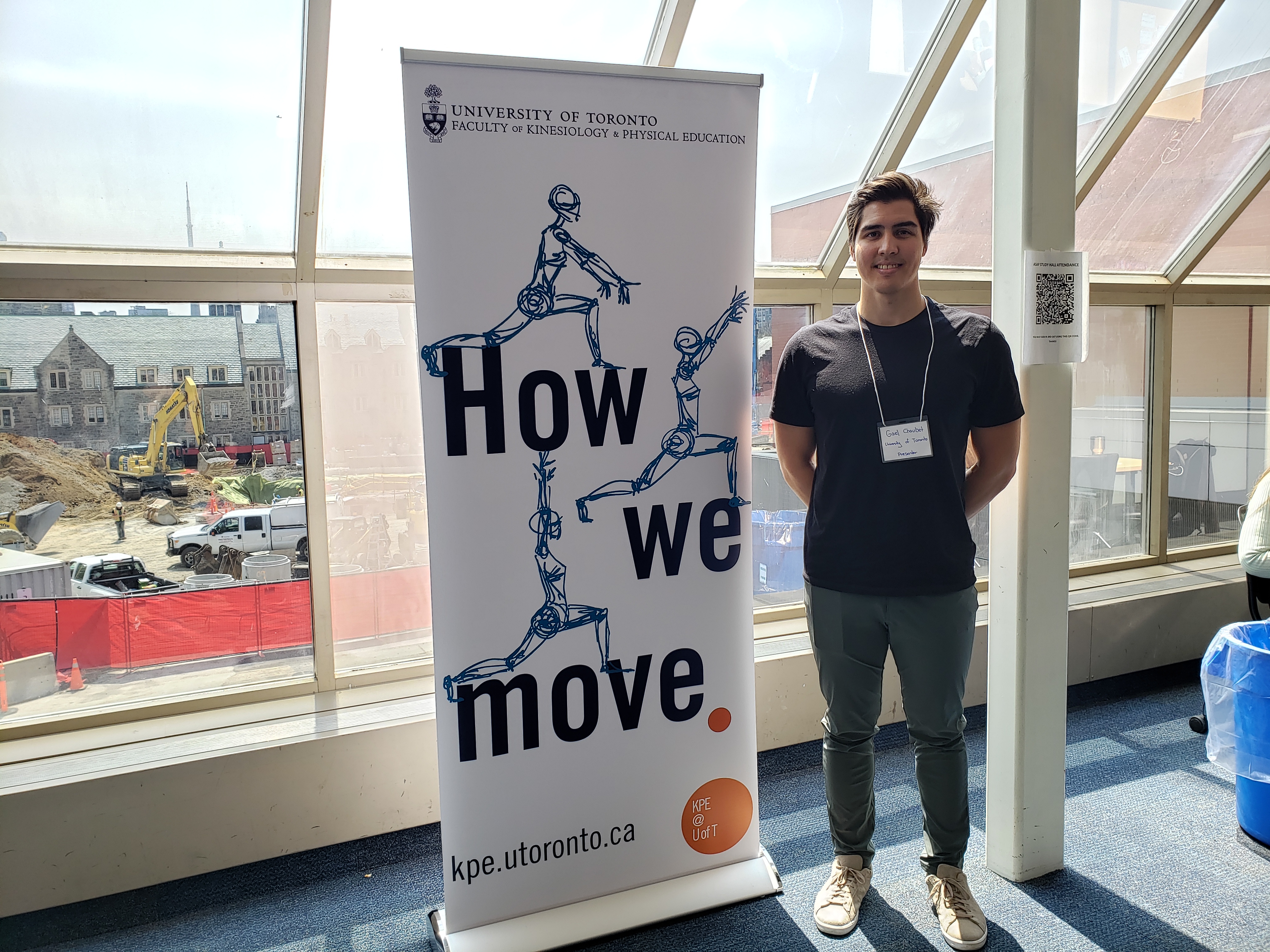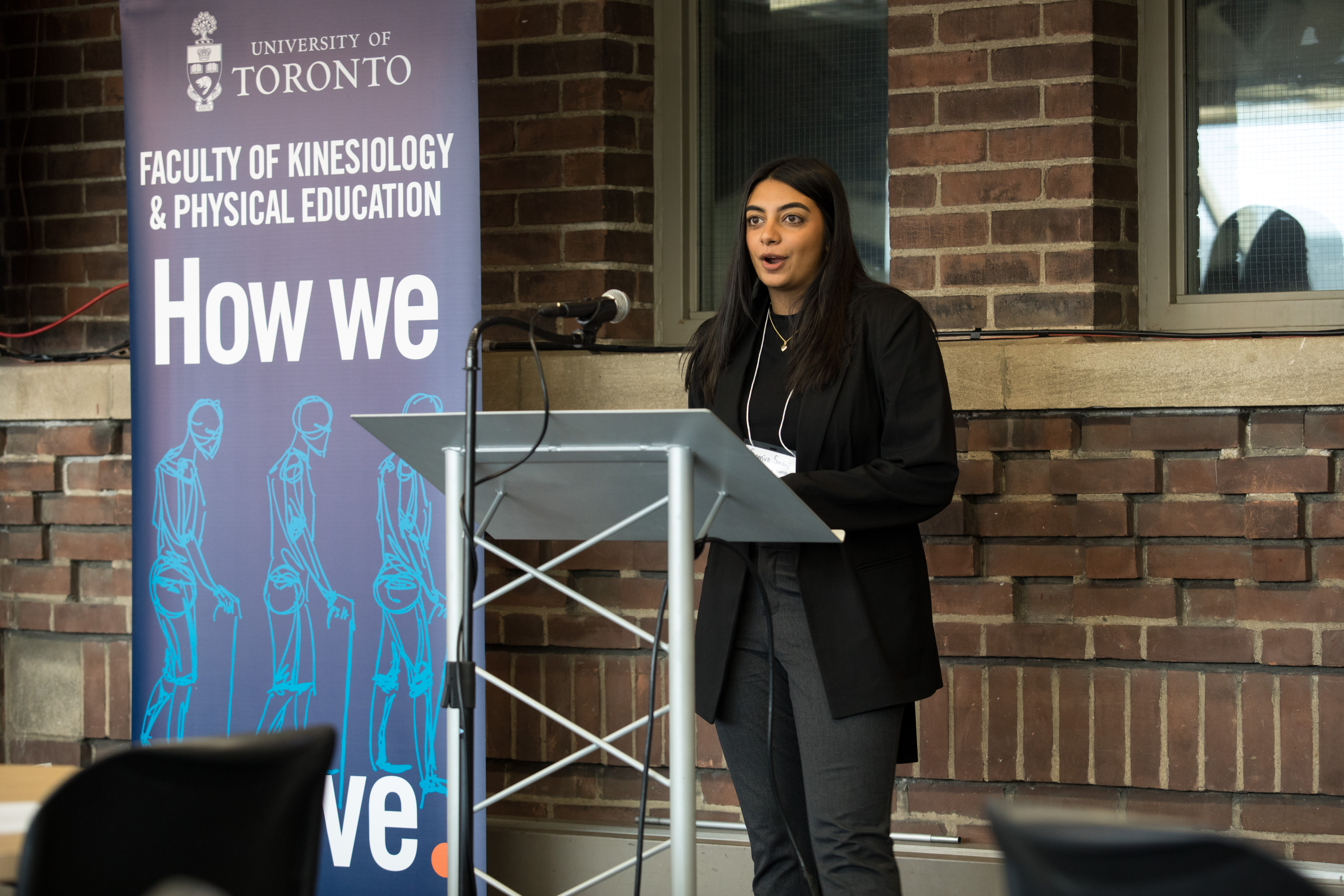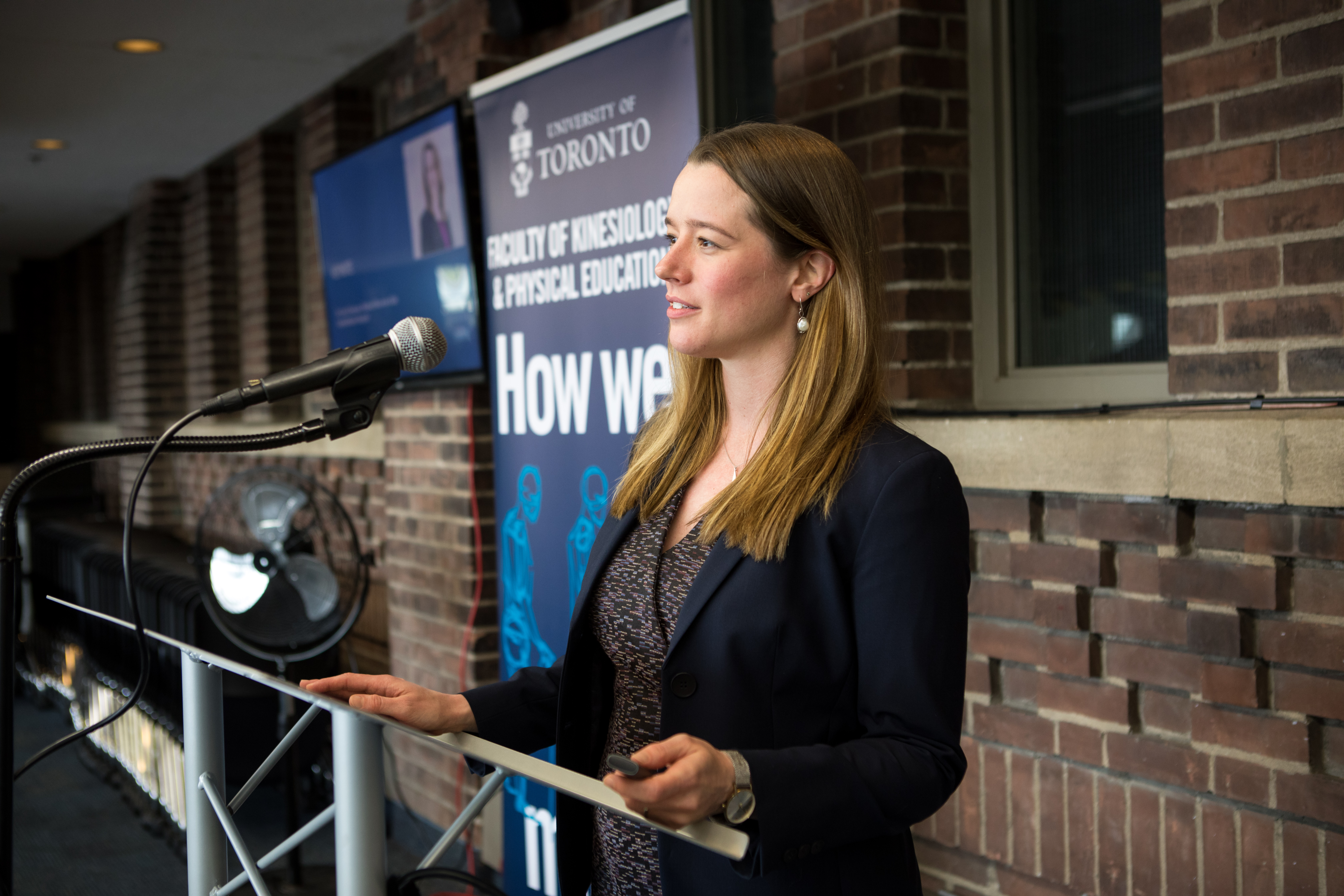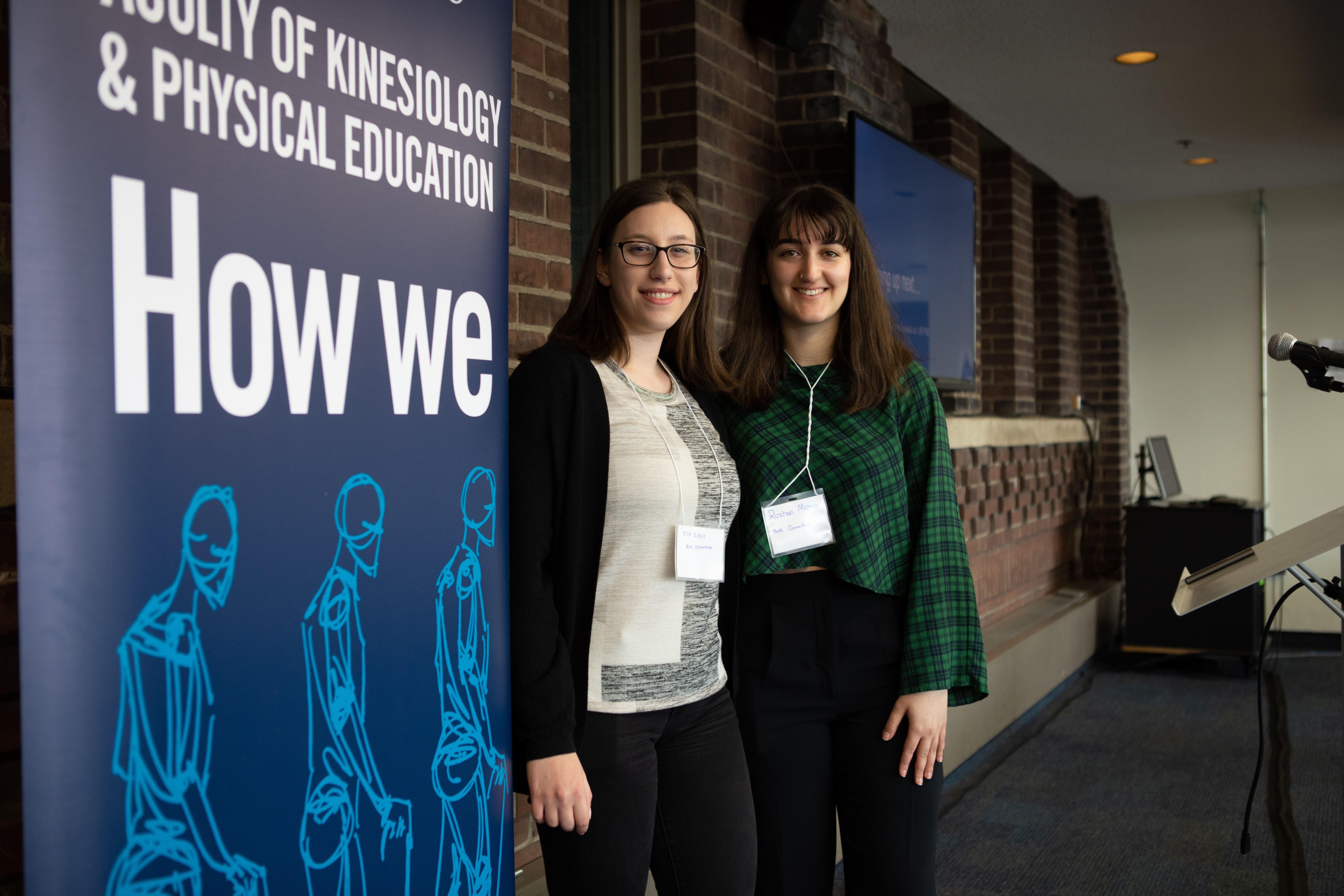Should you train until you fail? That’s what Gael Chaubet, a first year PhD student at the University of Toronto Faculty of Kinesiology and Physical Education (KPE), is trying to find out. Working with Assistant Professor David Frost, Chaubet is exploring the pros and cons of a popular weightlifting technique, which has athletes doing as many repetitions of an exercise as they can until their muscles are so fatigued that they can’t perform the movement anymore.

First year PhD student at KPE Gael Chaubet discussed his research at the 2023 BOK conference (photo by jd)
“There's this tendency to push athletes to failure to get the most out of them,” says Chaubet, "and I'm presenting arguments for and against it.”
Chaubet had the opportunity to present his findings at the Bodies of Knowledge (BOK) research conference hosted annually by KPE graduate students for graduate students of kinesiology at U of T and other universities. The conference is an opportunity for early career researchers to share their research about health, sport and physical activity with their peers.
“It's really important for grad students to get out there,” says Chaubet. “Every opportunity you have to present your research to an audience is a good opportunity to learn and grow from it.”

First year KPE master's student Samira Sunderji presented at the 2023 BOK conference
Samira Sunderji, in her first year of a master of science degree at KPE, is studying about exercise psychology and the determinants of physical activity with Professor Catherine Sabiston in the Faculty’s Mental Health and Physical Activity Research Centre (MPARC).
Her project is looking at the 2019 National College Health Assessment Survey, focusing specifically on data about body image, physical activity and mental fatigue.
“By discussing our research and answering questions about it, we’re able to break down the information into smaller chunks that make sense for everyone, across varying levels of interests and expertise,” says Sunderji.
Kate Einarson, a knowledge translation specialist in BRI, delivered the keynote address.
That was, in effect, the key goal of the conference, whose theme was re-thinking research in a post-pandemic world, with an emphasis on knowledge translation: the practice of moving research from the laboratory and research journals into the hands of people and organizations who can put it into practical use.
Kate Einarson, a behavioural scientist and interdisciplinary scholar, was invited to deliver the keynote address. Einarson, whose research uses music as a means to examine auditory and motor development in infants and children, is a knowledge translation specialist in the Bloorview Research Institute at Holland Bloorview Kids Rehabilitation Hospital.
“Knowledge translation is really important,” says Chaubet. “My supervisor and I talk about this all the time.
“He'll ask me if I have an idea for research or for a paper, then he'll ask me, "Okay. Well, what are the practical applications of it?"
This is a question on every student's mind.

KPE master of science students Elia Rishis, left, and Rozhan Momen, right, coordinated the 2023 BOK conference with support from the conference committee made up of other KPE graduate students
“When I'm collecting data for my research project, I like to explain what each of these tests mean to my participants,” says Rozhan Momen, a second-year master student working with Associate Professor Daniel Santa Mina on a research project looking at frailty and its connection with muscle health in patients with pulmonary hypertension. “That way you can, in a sense, involve the participants in the process, as much as possible.”
Momen coordinated this year’s BOK conference with Elia Rishis, a first-year master student researching cardiac rehabilitation in female breast cancer survivors under the supervision of Assistant Professor Amy Kirkham.
“As researchers, we need to be able to present our research not only to our peers, but to all the stakeholders, the patients, the donors, the general public,” says Rishis. “BOK is an opportunity to practice doing that.”
“I loved it.” says Sunderji of the experience. “I got a lot of great feedback and feel better prepared for any upcoming conferences that may be larger in scale.”
